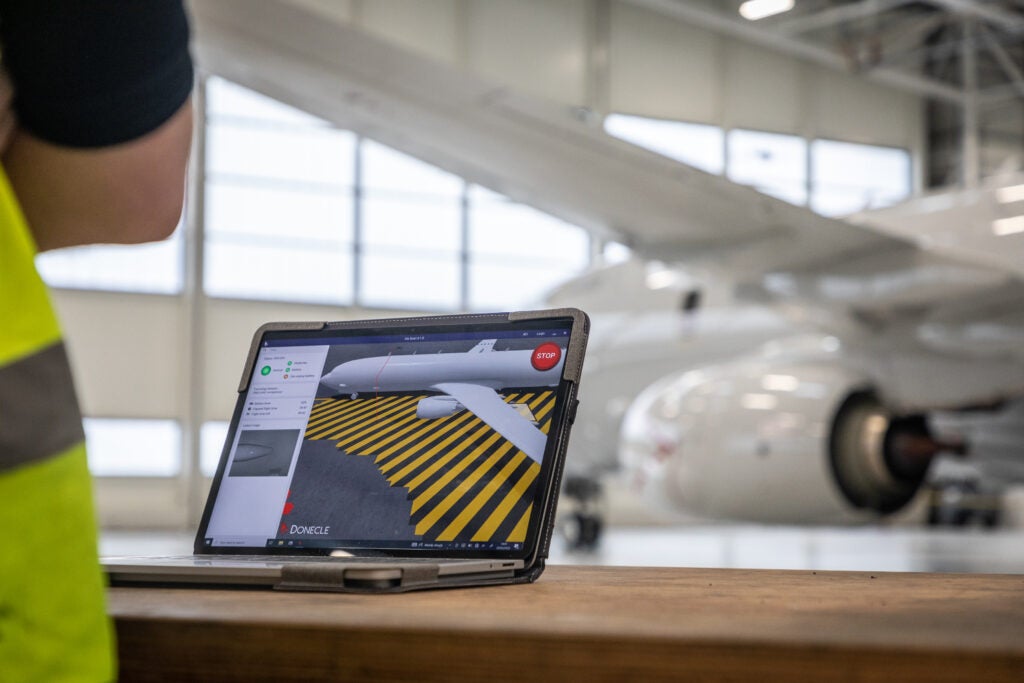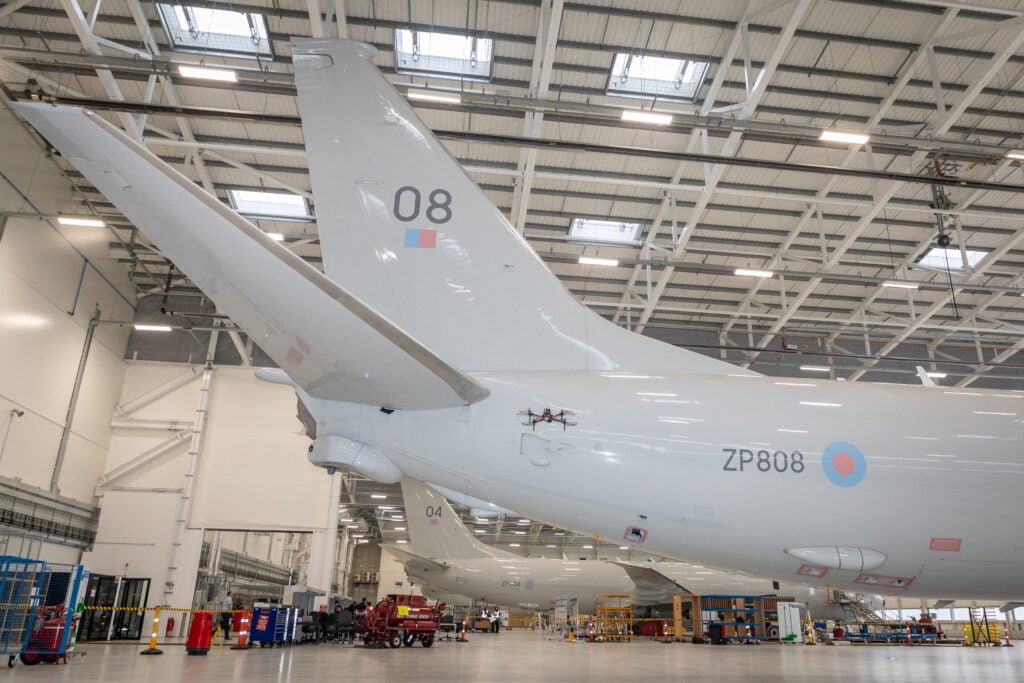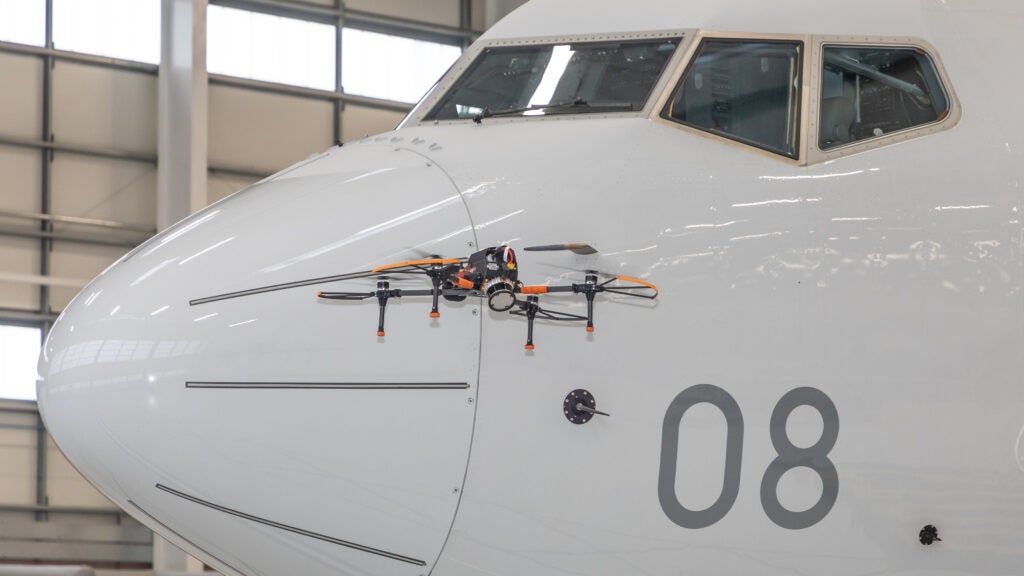Royal Air Force Trials Aircraft Inspection With Drones
The UK’s Royal Air Force has announced the start of a technical evaluation of drone use to support aircraft engineering inspections.
The technical evaluation, known as Project ASURVEY, will initially use a specialist quadcopter to visually inspect a Royal Air Force Poseidon MRA1 maritime patrol aircraft in a hangar at RAF Lossiemouth. In this role, the drone will experimentally replace manual visual inspections of the aircraft by engineers before and after every flight.
The drone uses a Basler Ace 2 PRO 24 megapixel camera to capture over 1300 images of the scanned aircraft, with each scan producing around 5 gigabytes of data. The RAF says that the drone can scan 95% of the Poseidon’s exterior in 30 minutes, with potential time savings during scheduled maintenance measured in hours.

Project ASURVEY is being funded under the RAF’s Astra innovation program, with project leaders already trained in safe operation of the drone around the Poseidon and the hangar. Team members are now learning more about the data the drone can provide, and training the drone to recognize different elements on specific aircraft being scanned, with Project Lead Flight Sergeant Andy Fleming saying:
“There’s a real excitement around this technical evaluation and what it can potentially offer to the RAF. Now the drone has been delivered, we’ve started training the right people on how to safely operate it around an aircraft in a hangar. The next step is to teach it the specifics of each tail number so it can clearly identify even the smallest areas of damage. It’s great to see the RAF embracing the cutting-edge inspection technology available, to streamline and improve inspection processes.”

Once the drone is fully trained, RAF engineers will be able to use the drone to rapidly and accurately identify any areas of potential damage on any Poseidon aircraft. Should the project prove successful, Astra hopes that drone-based visual inspection will be used on other aircraft in the RAF’s fleet potentially improving turnaround times and drastically reducing man hours needed to inspect aircraft.

